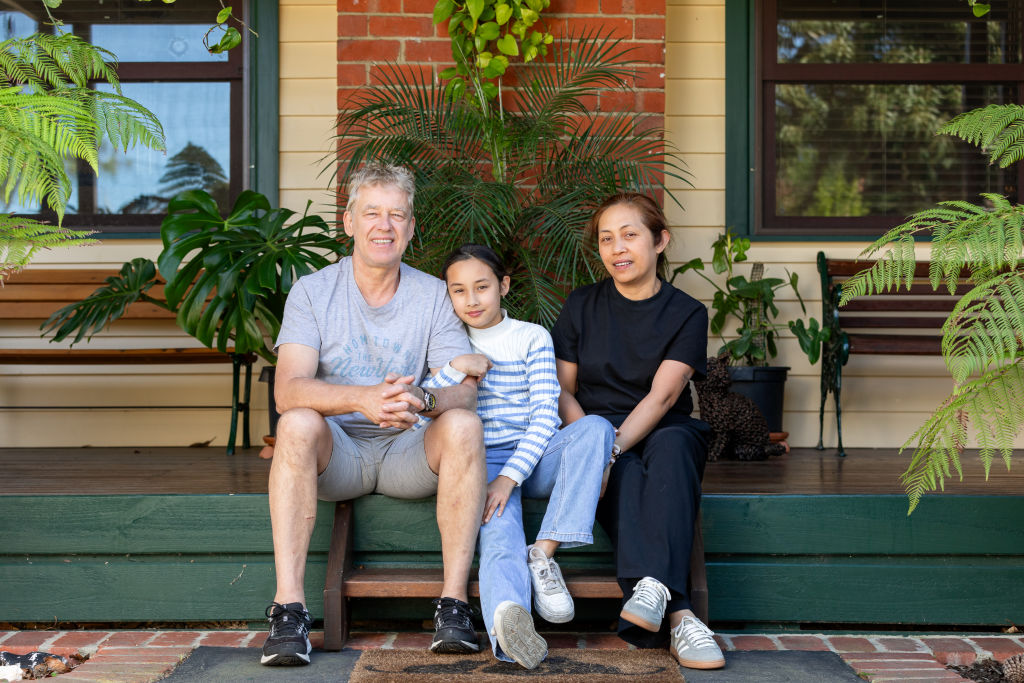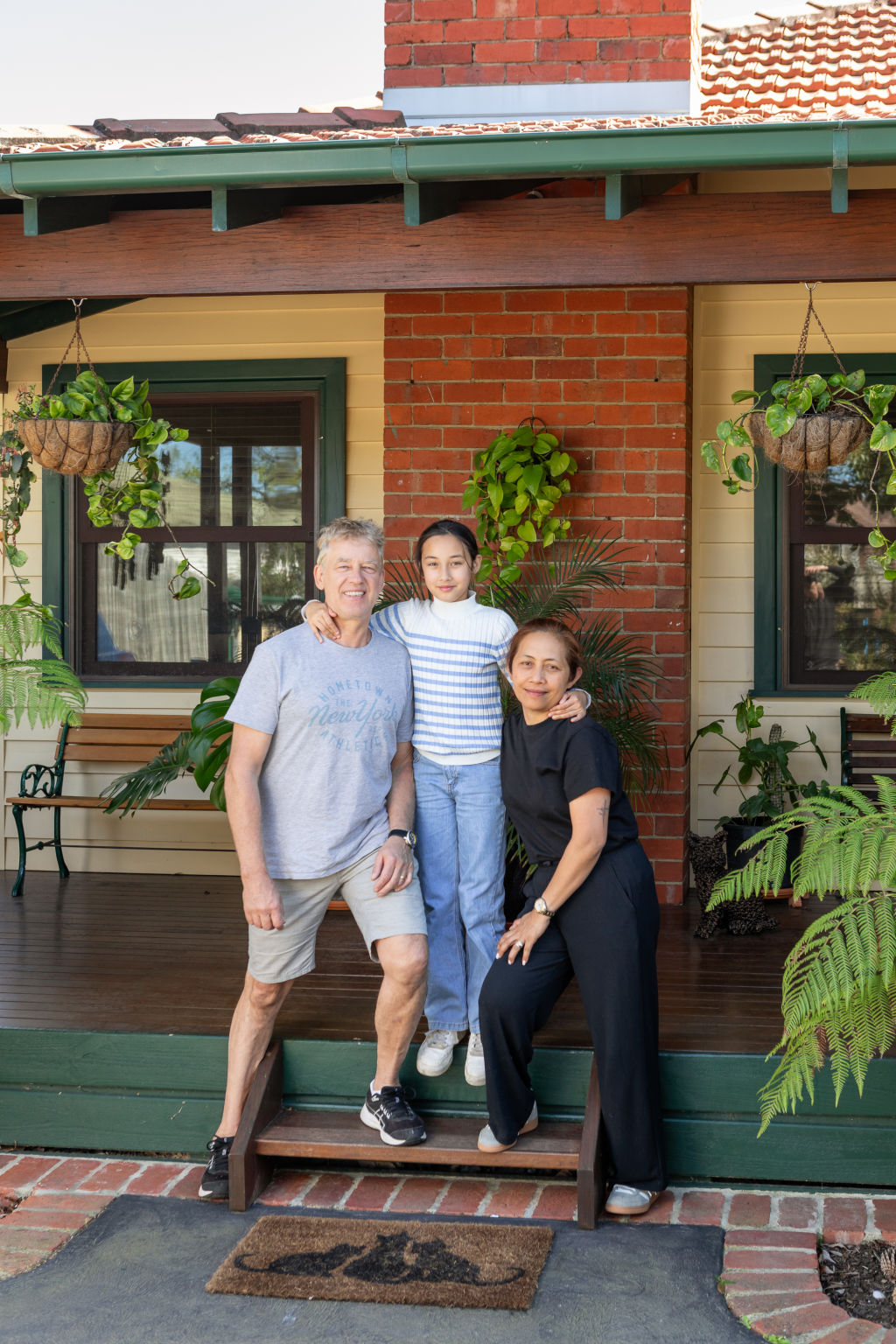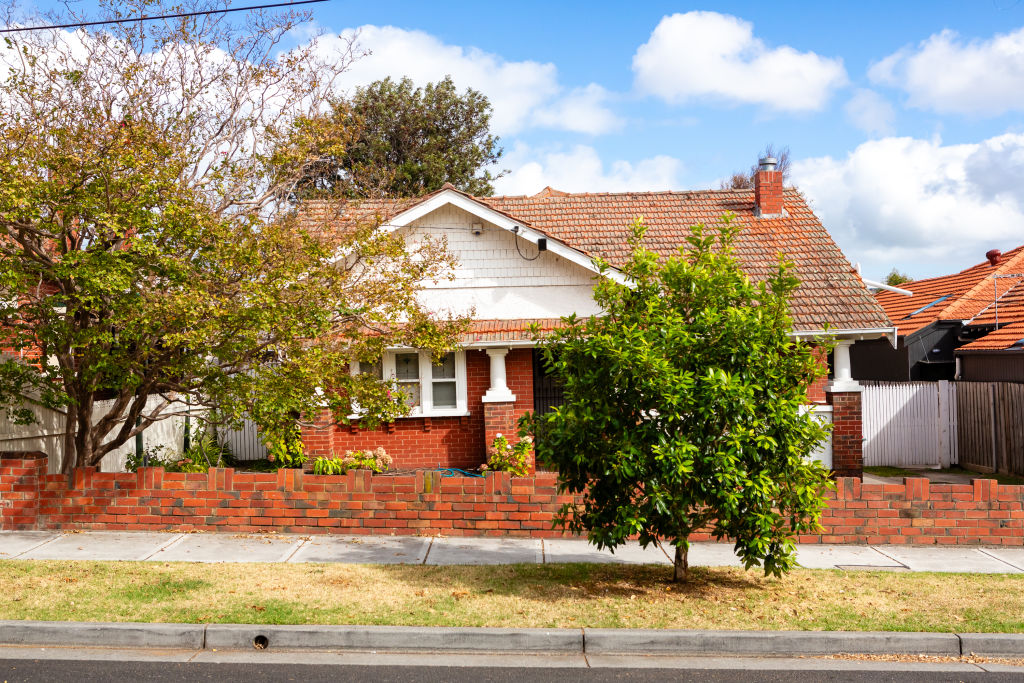Real estate for kids? Why parents are buying homes for their school age children

Shortly after Bernhard Walther made the winning bid on a two-bedroom home in Frankston in October, he told his 10-year-old daughter Victoria it would one day be hers.
He’s not sure she fully understands, but he knows it will give her a leg up in the property market.
“I think she knew it when we said it, but I’m not sure she really recognised it,” he says. “I would think that kids her age, later on, they will never be able to buy something anymore.
“And of course it’s a pleasure for us as well when we are old and grumpy that the daughter can look after us as well a little bit, not too far away from us. So it’s a win-win probably for both.”
Walther and his wife, Janette, had kept a close eye on properties for sale in south-east Melbourne before buying the house in Frankston.
In the four years it took them to buy the property for their only child, the median price for a two-bedroom house rose in Frankston from $480,000 to $580,000.
“I think property prices will continue to go up because it looks like we are getting more and more population in this country,” Walther says.
“Australia is the size of Europe with only 30 million people and definitely more people will come.”
Walther says he and his wife have paid off their mortgage and renovated their house, so they felt this was the right time to invest in their daughter’s future.
The Mordialloc couple wanted a house close to a train station, and preferably a Californian bungalow similar to their own.
They plan to rent out the house until Victoria is ready to move in.
“I think a lot of people are [buying for their children] and I think it’s smart to do if you want to look after your kids,” Walther says.
Parents buying houses for their children is nothing new, but it has become increasingly common in Melbourne this year.
With interest rates remaining stubbornly high and no signs of relief until next year, mums and dads are opting to give their kids a much-needed boost now rather than later.

Buxton director Halli Moore says many parents he speaks to are anxious about their children’s ability to buy property in such a tough climate. “I had a property at the weekend that sold and it was a $1.4 million-odd purchase made by the parents because they are genuinely worried that their kids won’t have an opportunity to get into the property market,” he says.
Moore says it is common in the bayside apartment market for parents to buy and then lease the property to a child or multiple children. Most plans like this involve an eventual transfer of ownership to the children.
“Inevitably I’ve heard cases whereby they might go halves and then mum and dad ultimately sort of go, ‘Oh, well you’re doing a good job, you’re working hard, so we’ll forgo that little bit that you might owe us,’” he says.

As Baby Boomers age, economists are predicting a massive transfer of wealth to the next generation. Boomers make up 21 per cent of the population, but hold 48 per cent of the country’s private wealth.
Social trend researchers at McCrindle have found 72 per cent of grandparents are concerned about the rising cost of housing, listing it among the top three worries they hold for their children’s future.
McCrindle predicts $6.2 trillion of wealth – in assets and cash – will be transferred to younger generations in the next two decades.
And many aren’t waiting to pass down their money as part of an inheritance.
Gary Peer director Leor Samuel says he often deals with young buyers who are being bankrolled by the bank of mum and dad.
“With the banks sort of tightening up a bit more on their funding, it’s always good to have the parents to help to chip in a little bit more just to help with their borrowing capacity to put more of a deposit down,” he says.
“I think it’s about giving someone a head start, and more parents are helping the kids now as opposed to later.”
We recommend
We thought you might like
States
Capital Cities
Capital Cities - Rentals
Popular Areas
Allhomes
More







